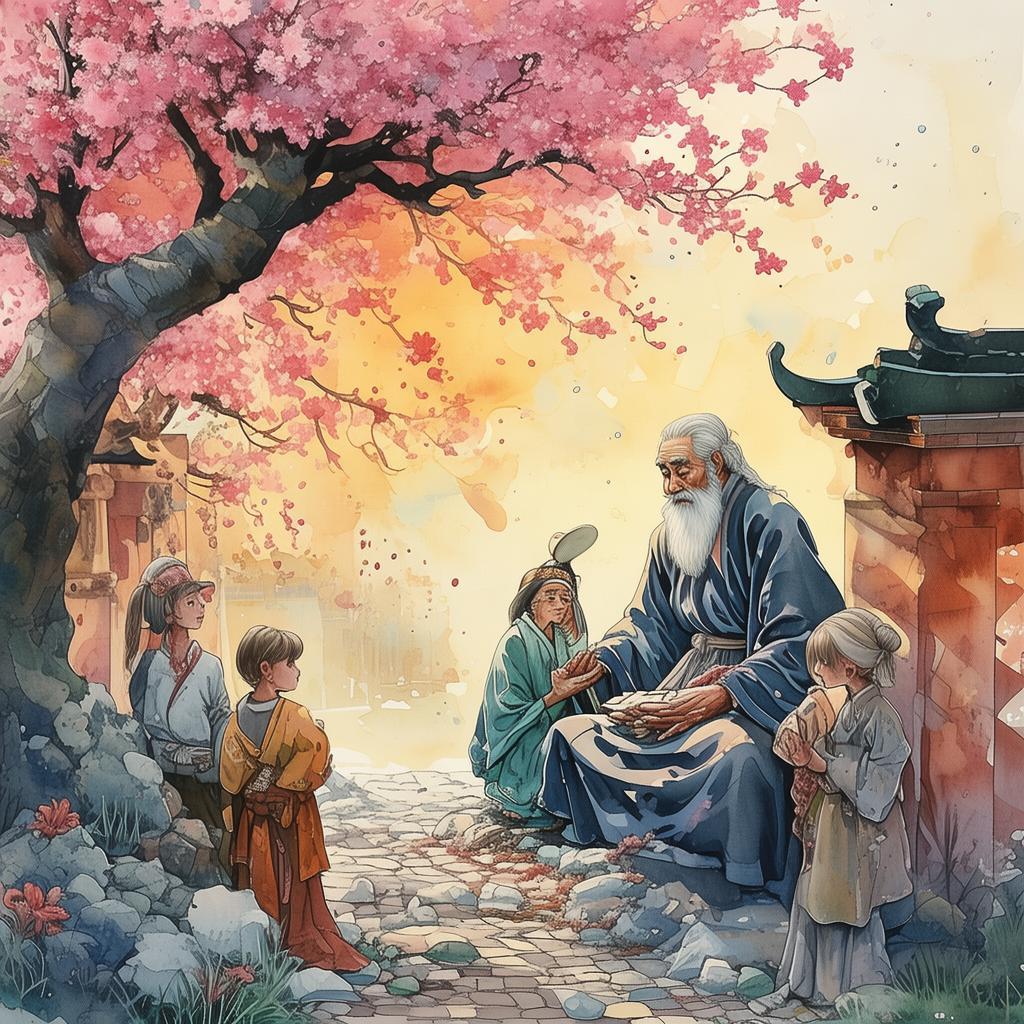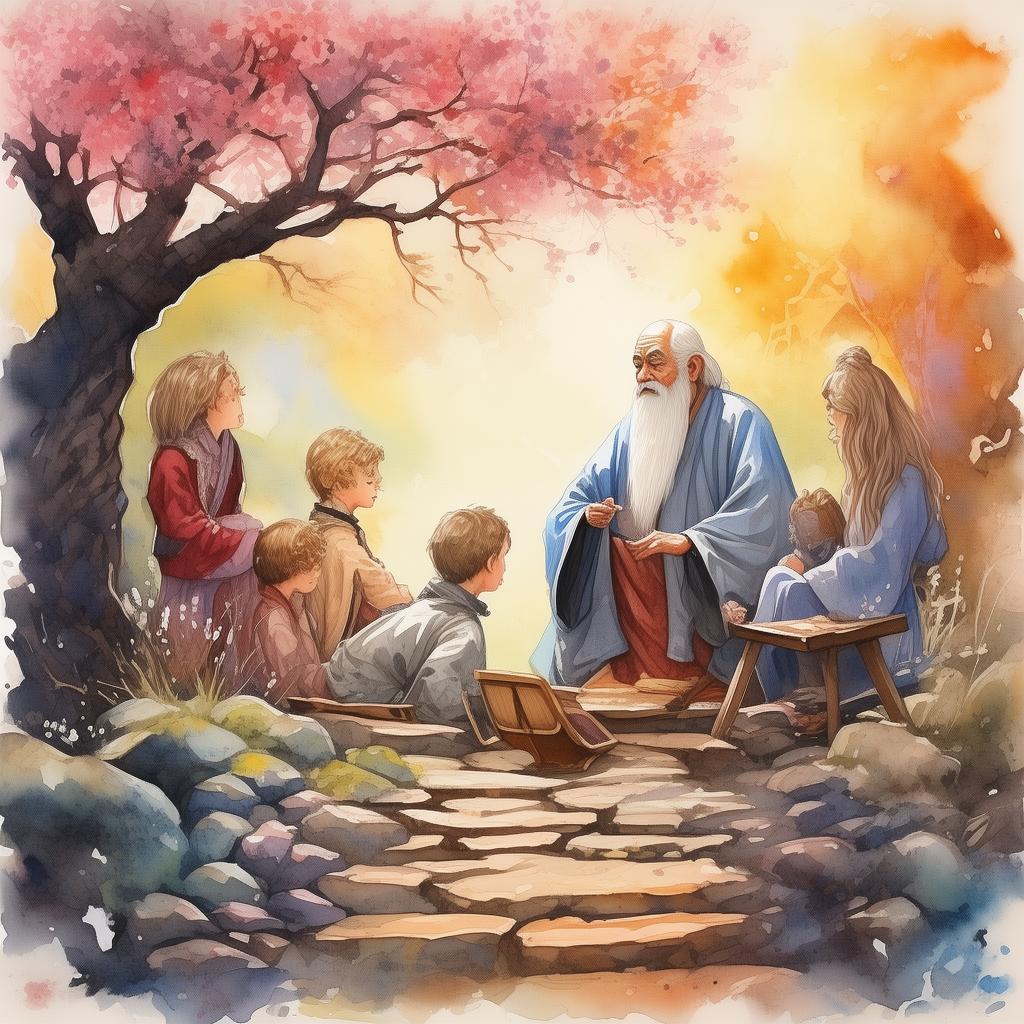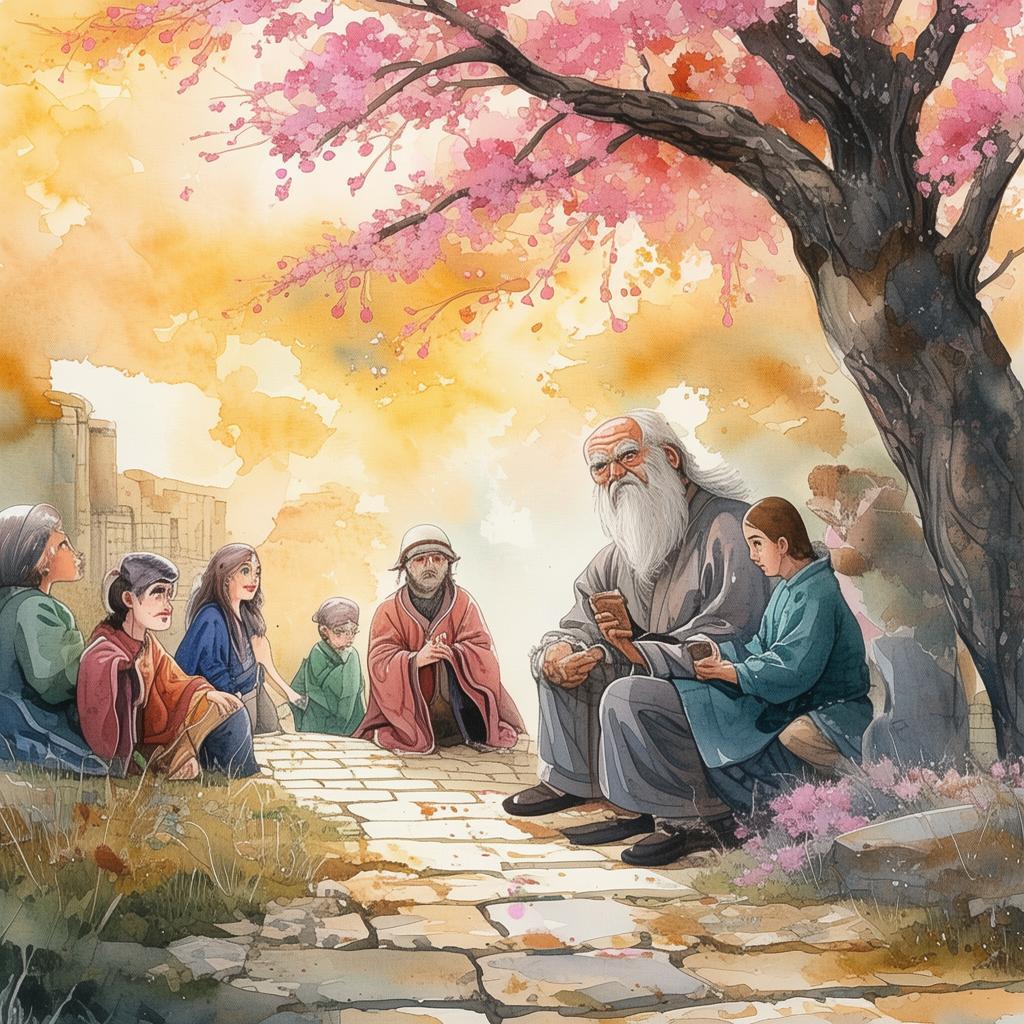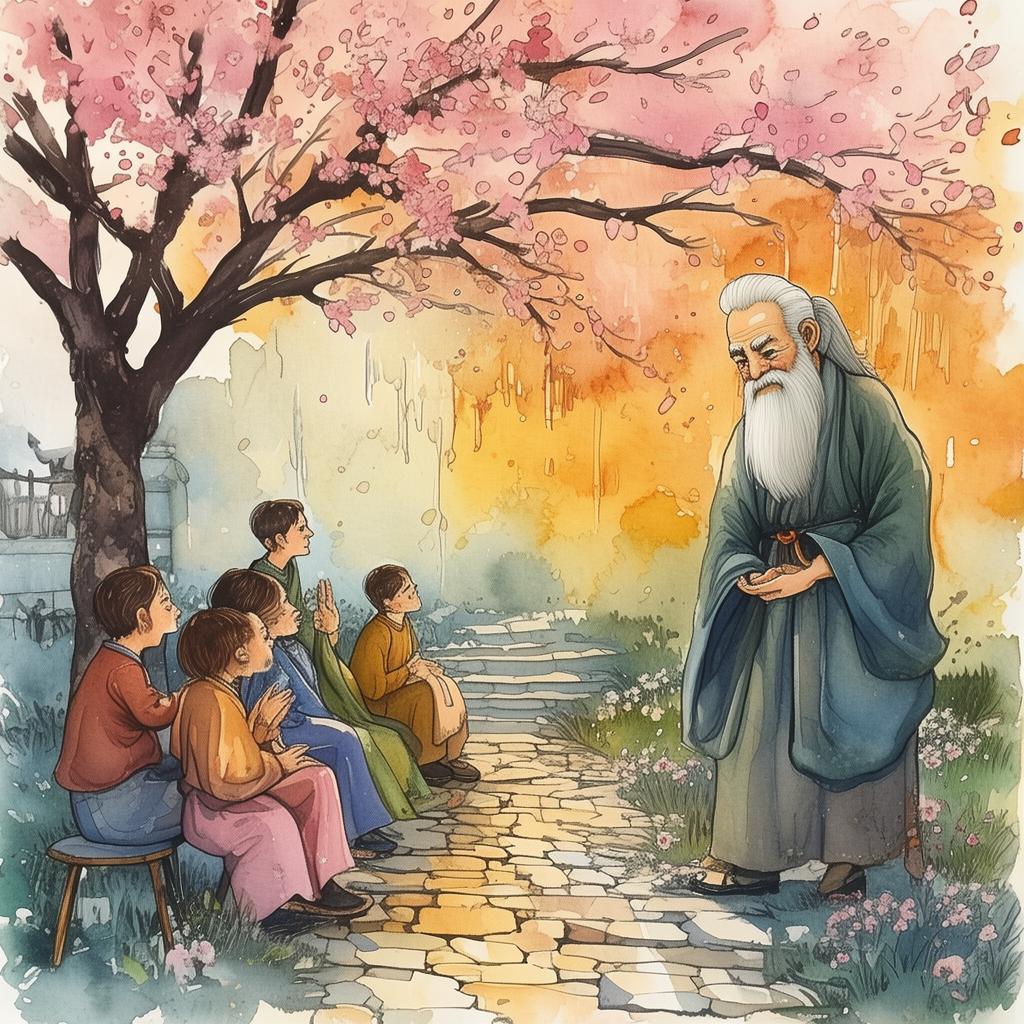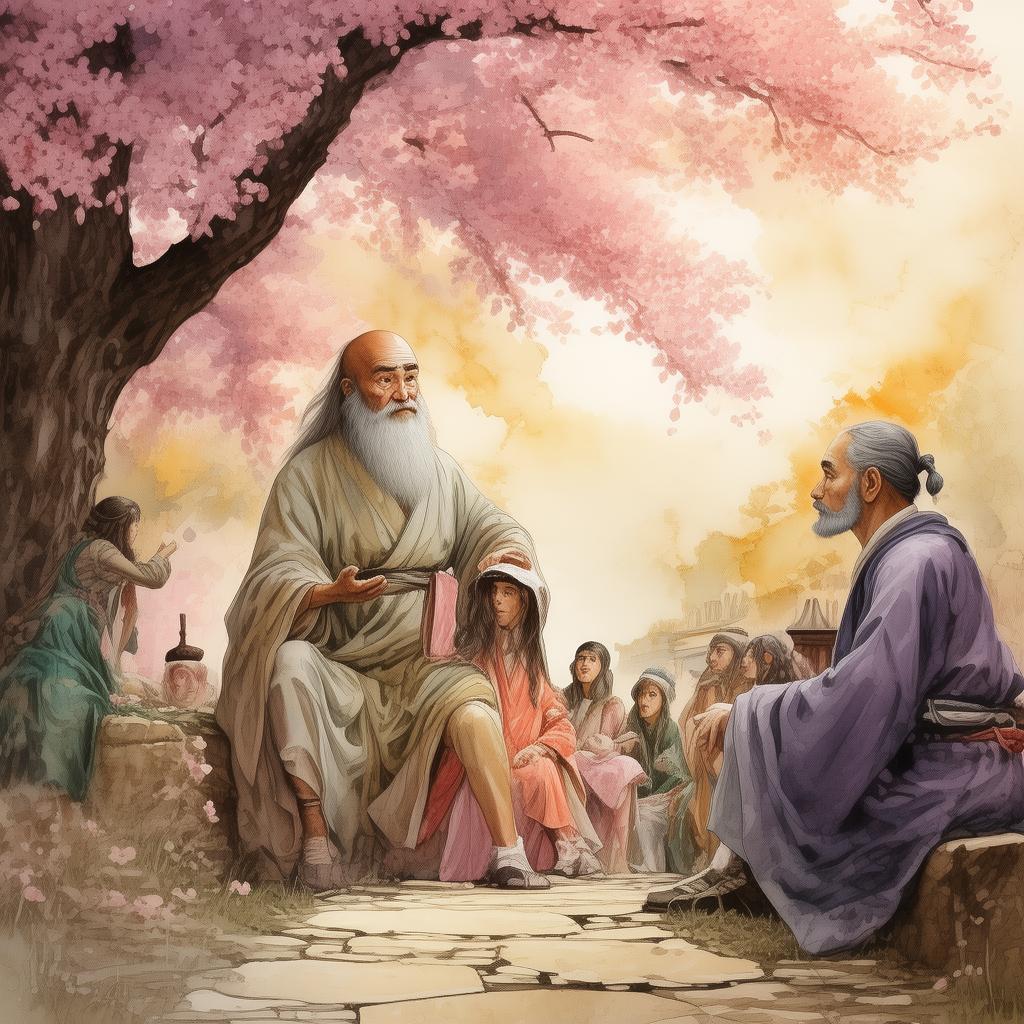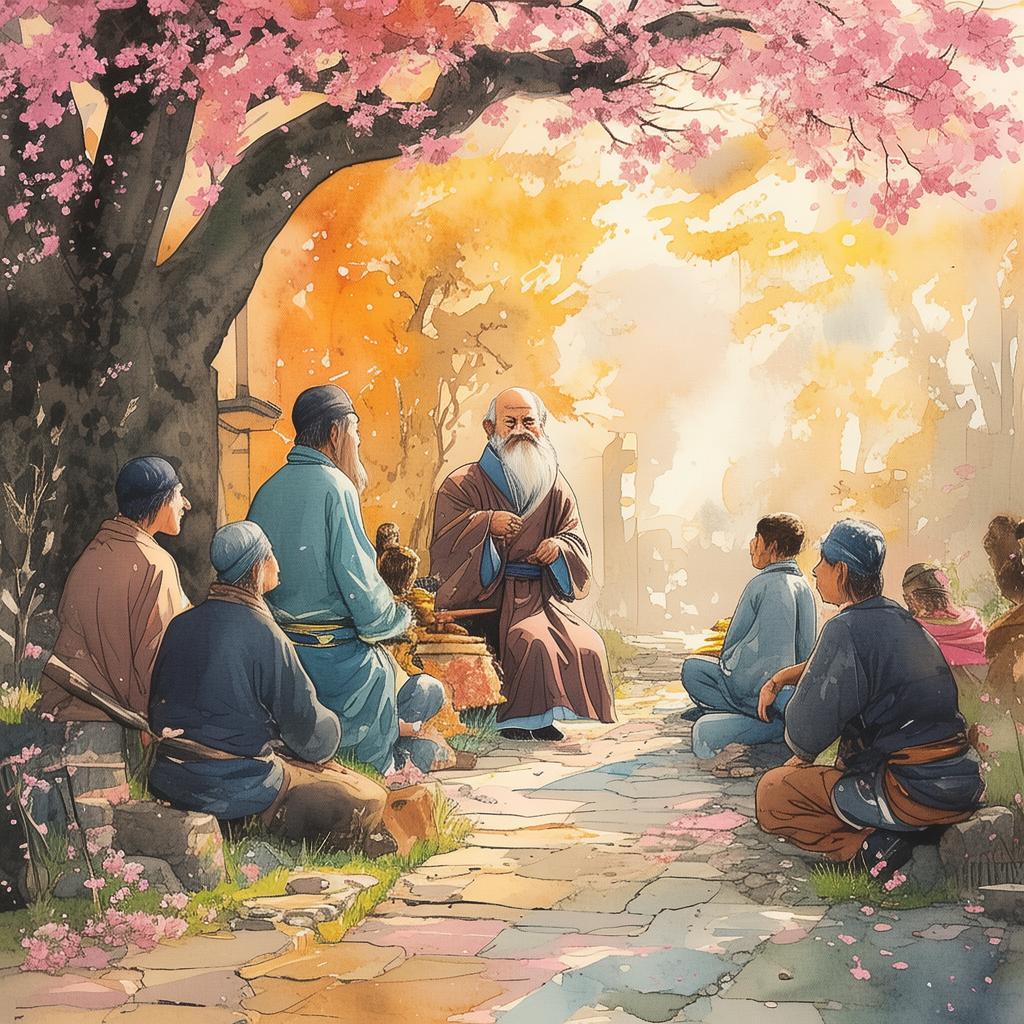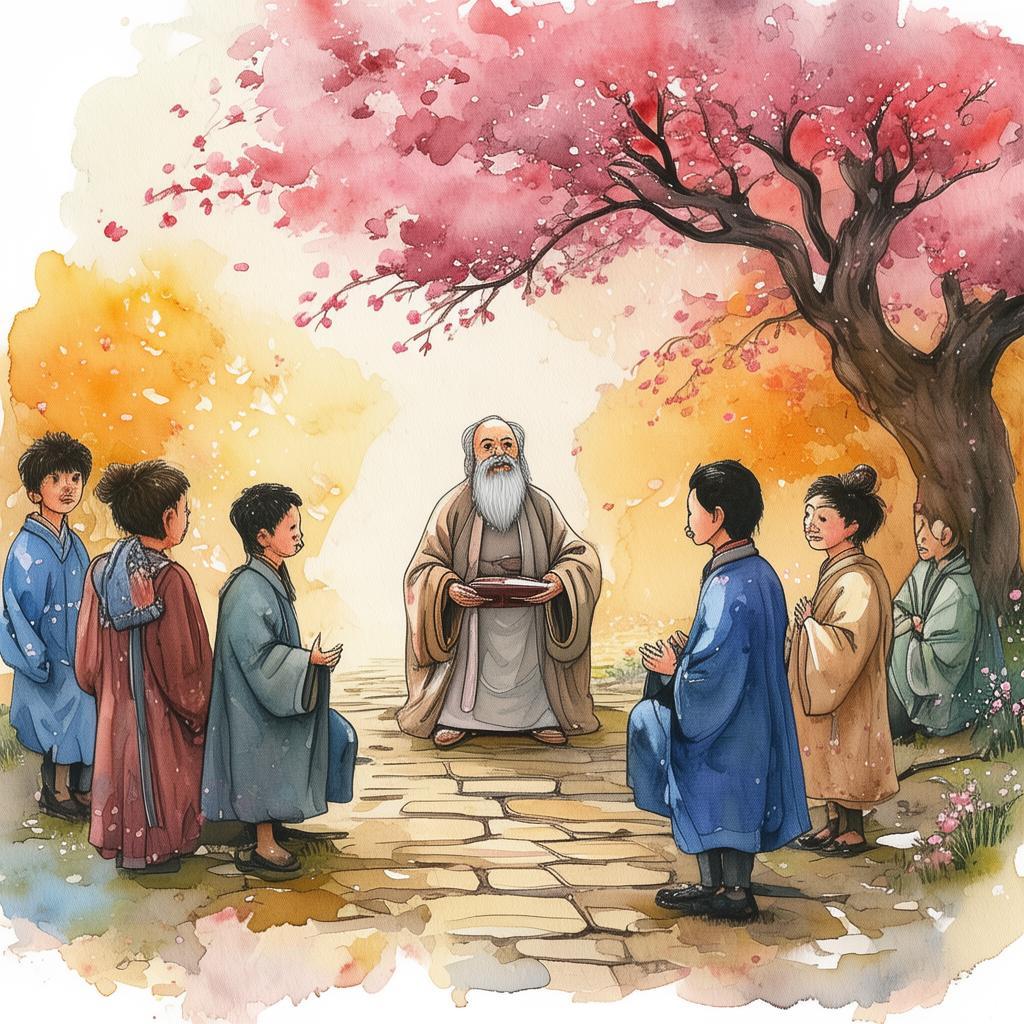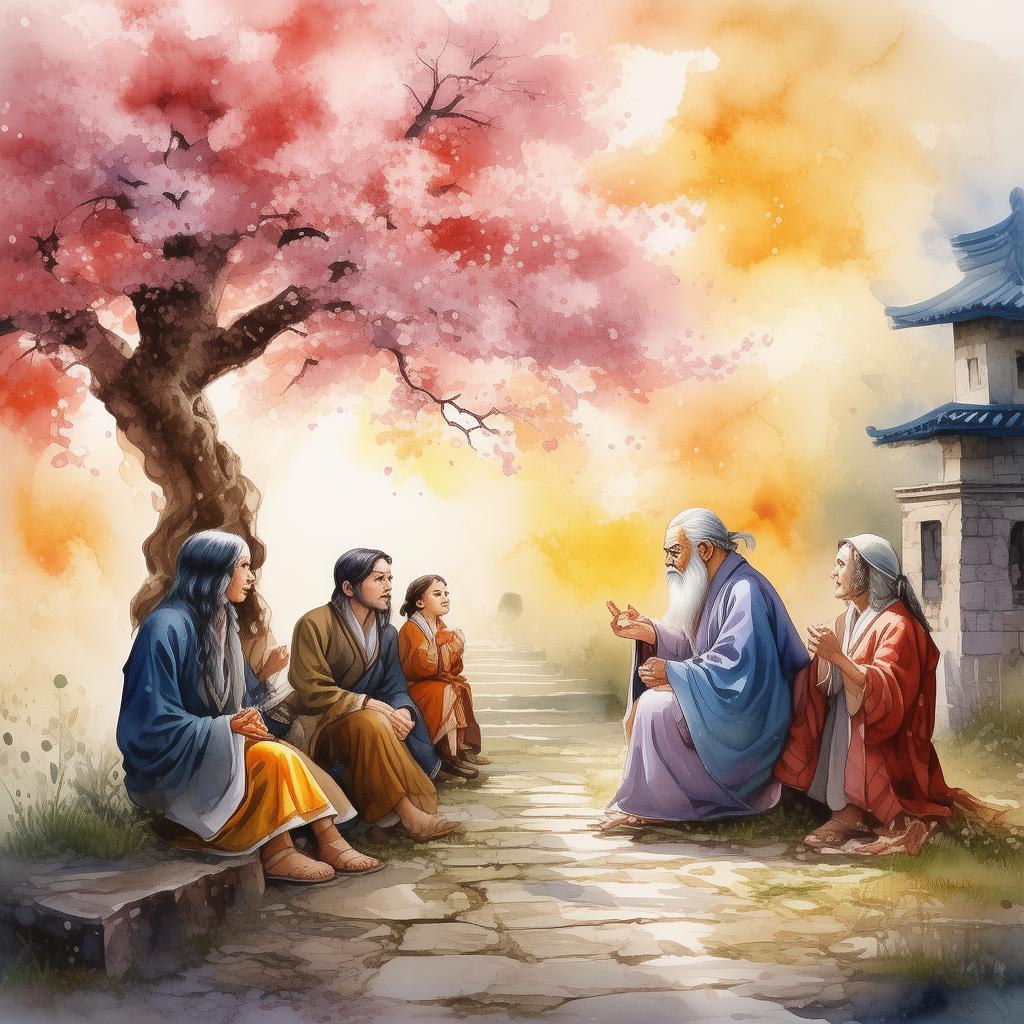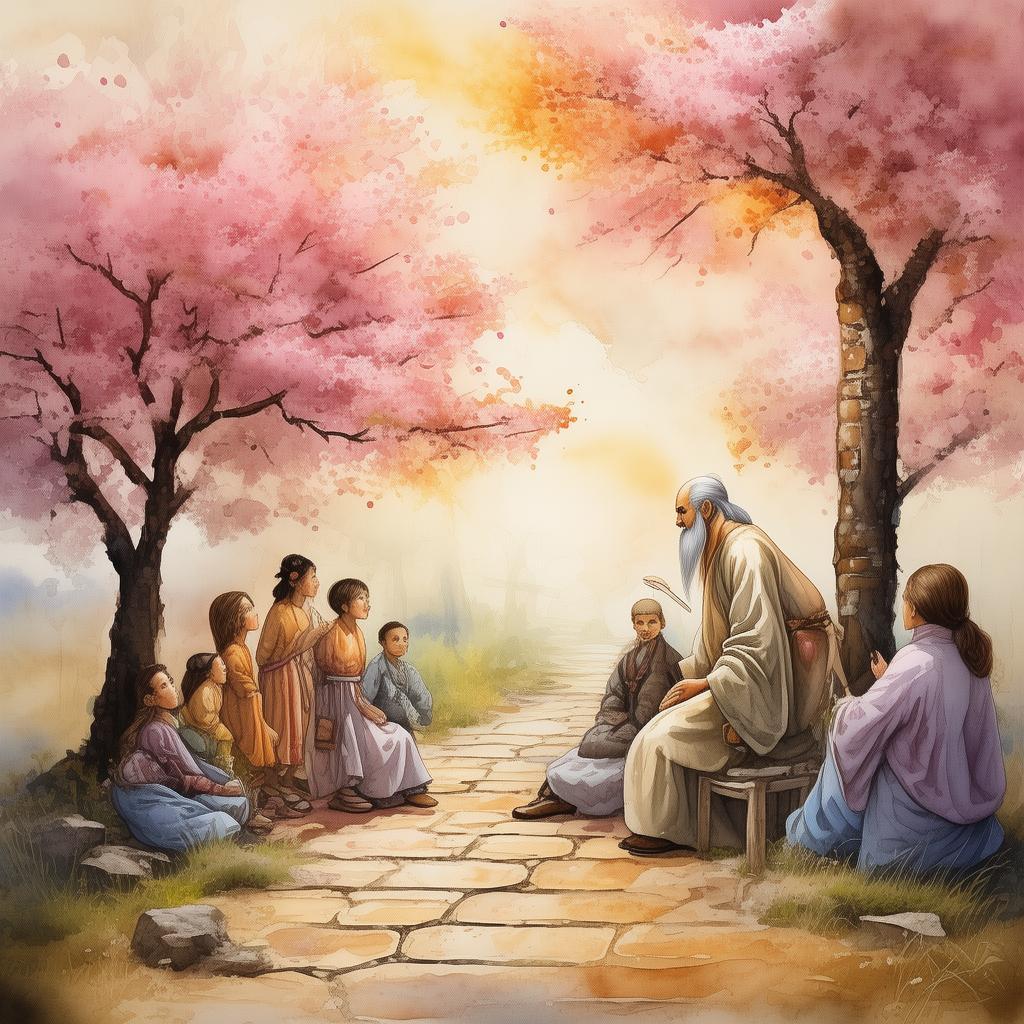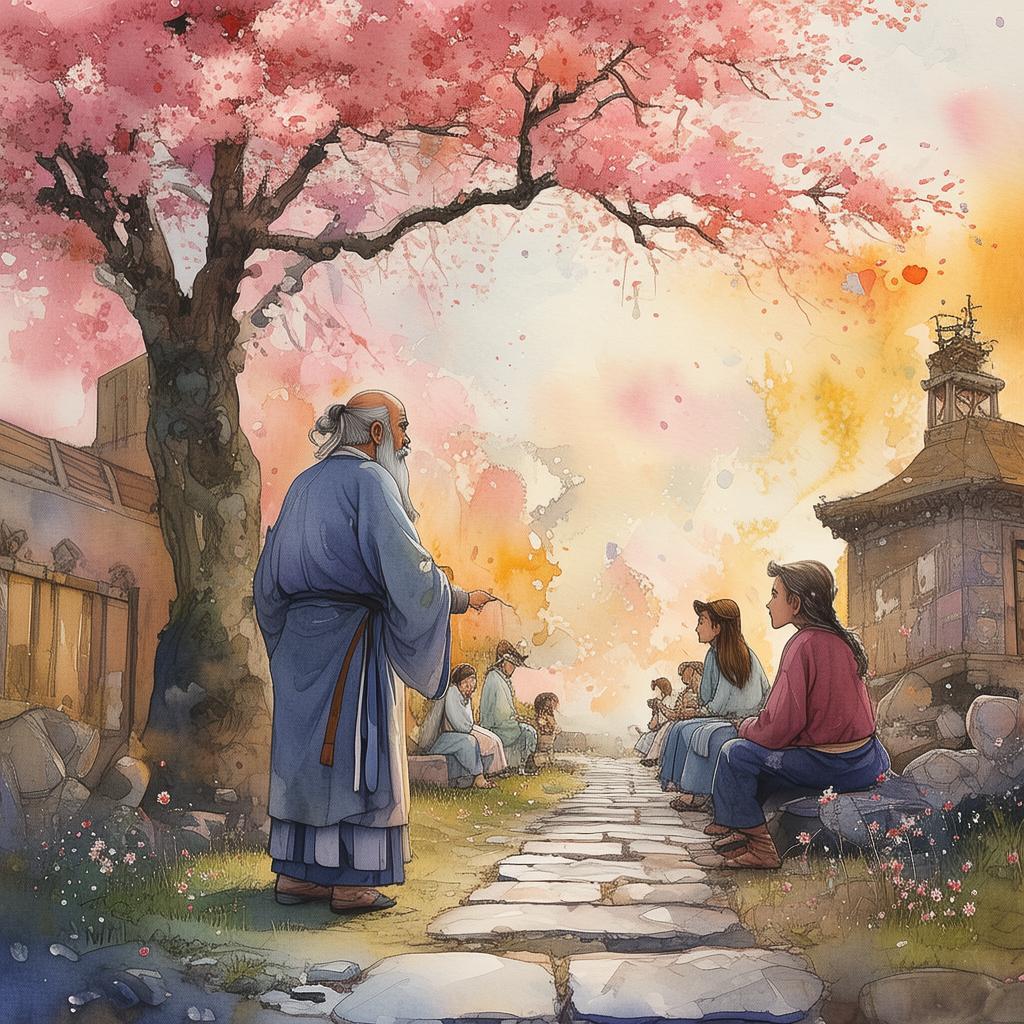The Necromancer's Scholarly Pursuit
In the heart of the ancient city of Elysium, where the whispers of the dead mingled with the echoes of the living, there lived a young necromancer named Lin. His name was spoken with a mix of reverence and fear, for Lin was not like other necromancers. He sought not merely to summon the spirits of the departed but to unravel the mysteries of the afterlife itself.
Lin's scholarly pursuit was driven by a singular obsession: the ancient scrolls of the Necromancer's Codex, a collection of forbidden knowledge that had been lost to time. These scrolls were said to contain the secrets of life, death, and the fate of souls after the final breath. The city's elders had long forbidden the study of such texts, warning that the knowledge within was too dangerous to be entrusted to the living.
One fateful day, Lin discovered an old, dusty scroll hidden within the depths of the city's grand library. It was a fragment of the Necromancer's Codex, and its pages shimmered with an otherworldly light. The scroll spoke of a series of trials that must be undertaken to unlock the true power of the Codex. Each trial was a test of Lin's resolve, his understanding of the arcane arts, and his willingness to confront the darkness within himself.
The first trial was a riddle, inscribed in the ancient script of the dead. Lin spent days deciphering the enigmatic words, his mind racing with possibilities. Finally, he understood: the riddle was a reflection of his own heart. He must choose between the love of his mentor, a wise and compassionate necromancer, and the allure of forbidden knowledge. In the end, he chose his mentor, knowing that true power lay not in the dark arts but in the light of wisdom.
The second trial was a journey through the realm of the living and the dead. Lin was transported to a place where the spirits of the departed walked the earth, their forms ethereal and haunting. Here, he encountered the ghost of a young girl, her eyes filled with sorrow and longing. The girl had been betrayed by a loved one, and her spirit was trapped in this limbo, unable to move on. Lin, using his necromantic abilities, helped the girl confront her pain and release her spirit, allowing her to find peace.
The third trial was a test of Lin's resolve. He was faced with the choice of binding a powerful spirit to serve him or letting it go free. The spirit was a fearsome entity, its power unmatched. But Lin knew that to bind such a spirit would be to invite darkness into his own soul. He chose to release the spirit, understanding that true strength lay in the ability to let go.
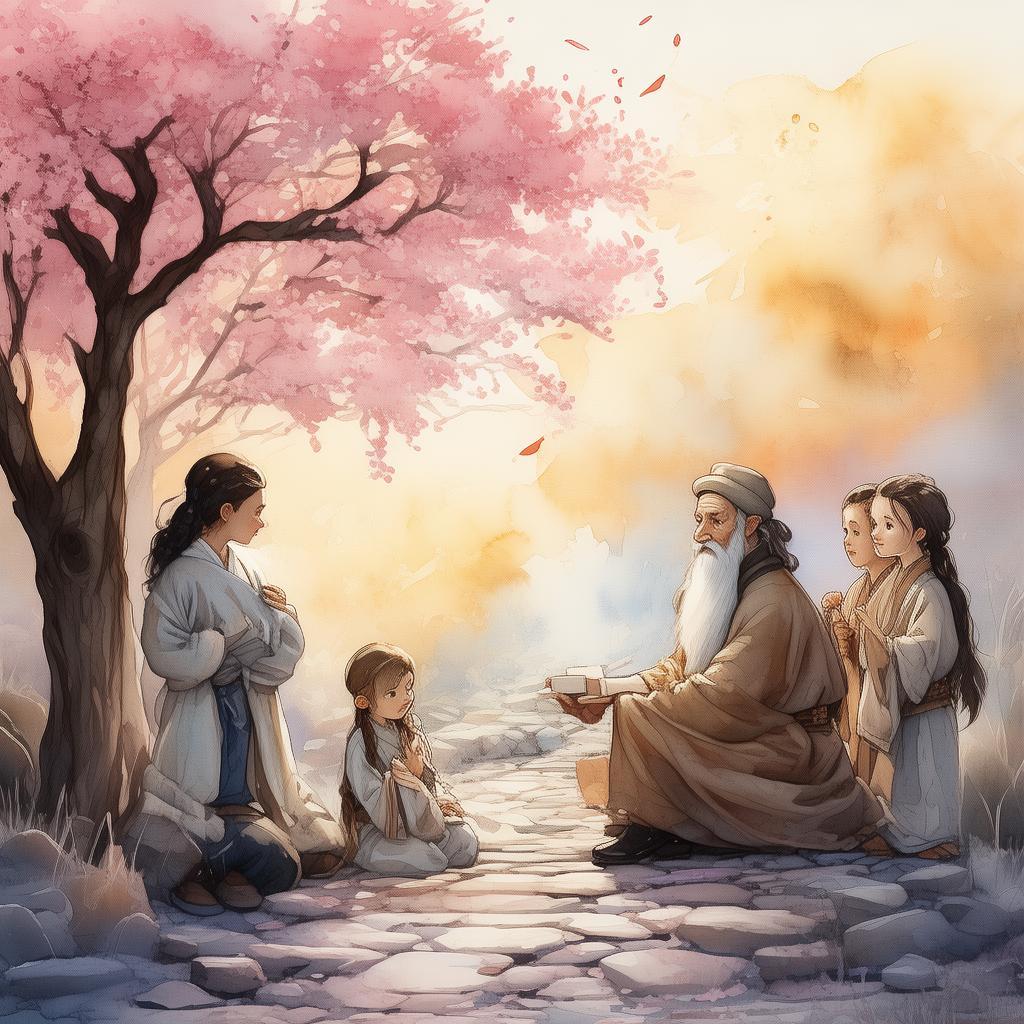
The fourth trial was a battle against his own shadow, a manifestation of his deepest fears and insecurities. The shadow grew and grew, threatening to consume him. But with the wisdom he had gained from his trials, Lin was able to confront his shadow and banish it, leaving him a stronger and more resolute necromancer.
The final trial was the most difficult of all. It required Lin to face the ultimate truth about the Necromancer's Codex and the fate of souls after death. He discovered that the Codex was not a book of power but a guide to understanding the nature of existence. The true power of the Codex lay not in the spells it contained but in the knowledge it imparted.
With the final pages of the Codex in his possession, Lin returned to the city of Elysium. He shared his findings with his mentor and the other necromancers, revealing that the path to true power was not through forbidden knowledge but through the pursuit of wisdom and compassion.
The city of Elysium was forever changed by Lin's scholarly pursuit. The necromancers no longer feared the power of the Codex, for they understood that true strength lay not in the dark arts but in the light of knowledge and the courage to face one's own fears.
And so, Lin's name was no longer spoken with fear but with respect. For he had not only uncovered the secrets of the afterlife but also shown the way to a more compassionate and enlightened existence. The necromancer's scholarly pursuit had not only changed his own life but had the power to change the world.
✨ Original Statement ✨
All articles published on this website (including but not limited to text, images, videos, and other content) are original or authorized for reposting and are protected by relevant laws. Without the explicit written permission of this website, no individual or organization may copy, modify, repost, or use the content for commercial purposes.
If you need to quote or cooperate, please contact this site for authorization. We reserve the right to pursue legal responsibility for any unauthorized use.
Hereby declared.
